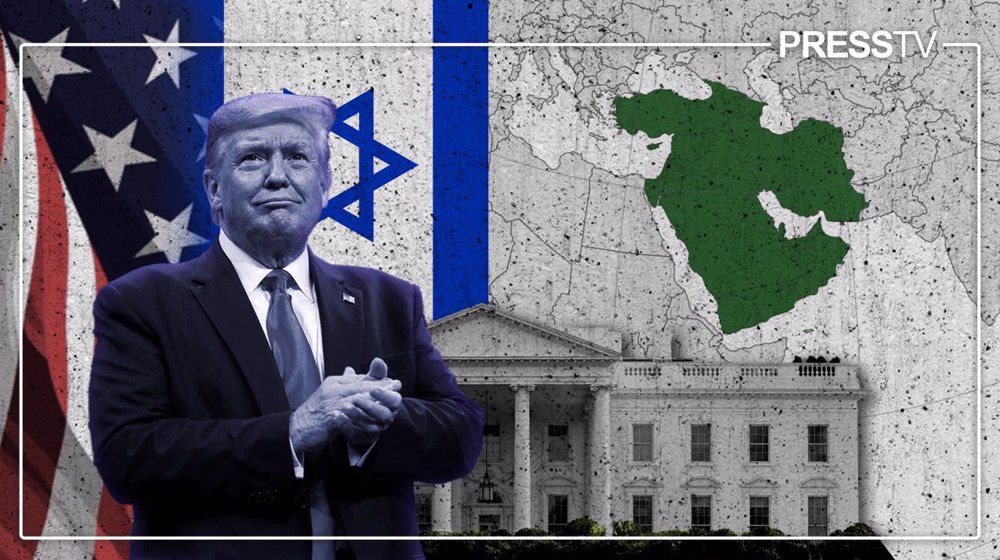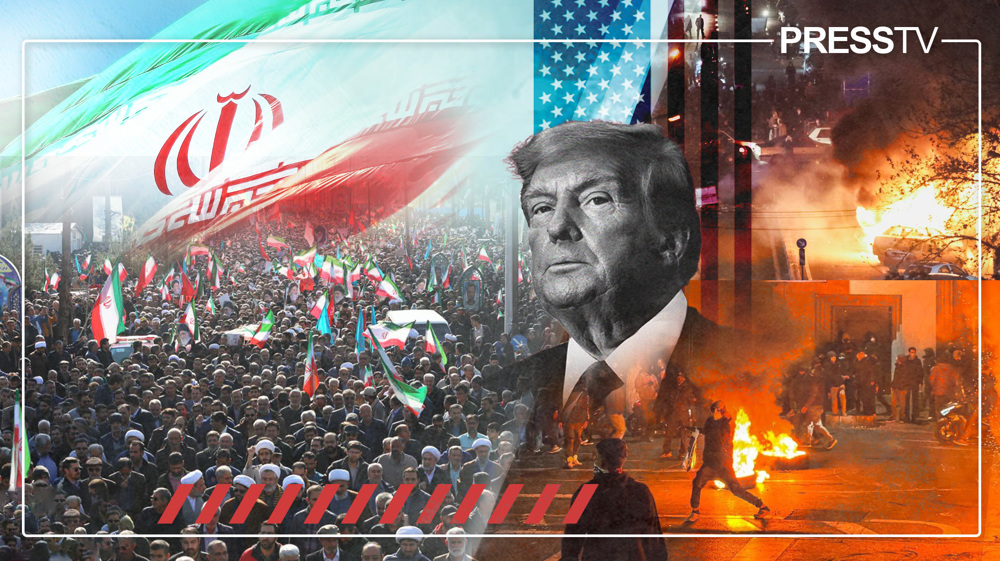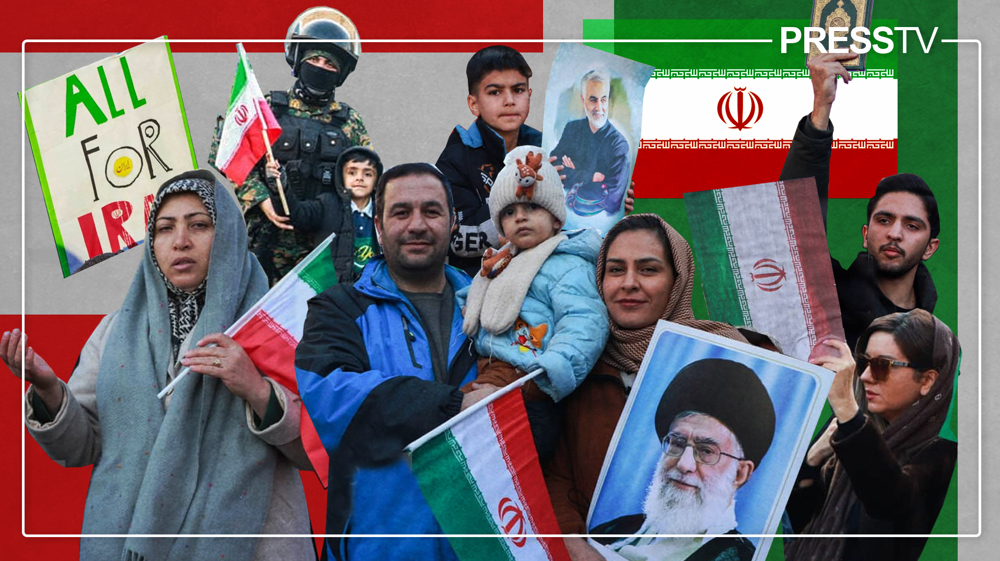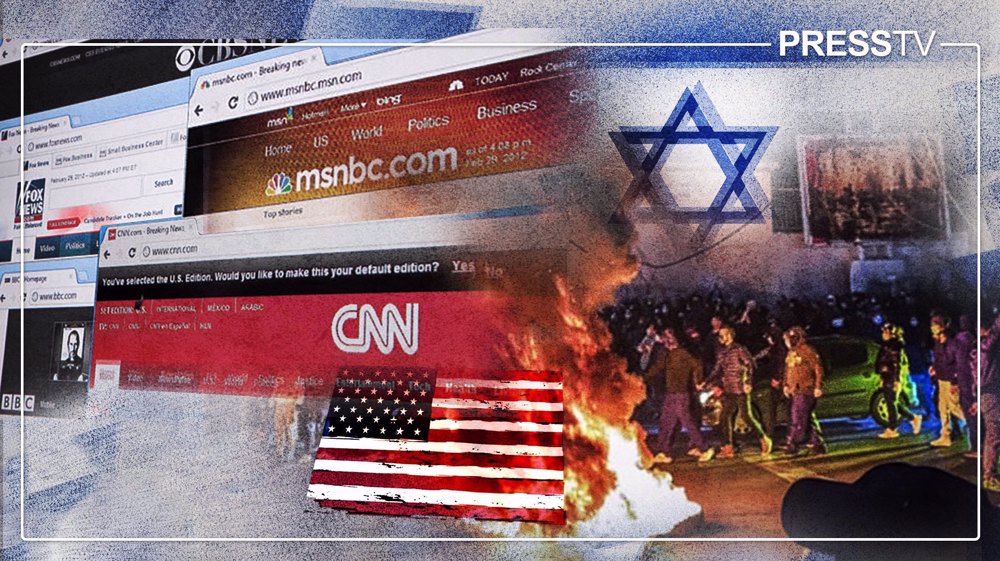Trump is back in White House to expose dirty underbelly of American politics
By Musa Iqbal
The return of Donald Trump to the White House was not entirely unexpected.
The Republican candidate and former president, infamous for his racist rhetoric, defeated sitting Vice President Kamala Harris, who, along with President Joe Biden, has been a primary backer of Israel's genocidal war on Gaza and Lebanon.
While many are elated that Harris and the Democrats are out of power due to their role in sponsoring the worst humanitarian catastrophe of the modern age in Gaza, Biden’s successor may not be an ideal replacement.
To quote Palestinian-British doctor Ghassan Abu Sitta, "Gone is a genocidal president too hypocritical to admit it, and in comes a genocidal president who wears it as a badge of honor."
Make no mistake, the switch in government in Washington does not mean an end to US complicity in the ongoing genocide in Gaza or a halt to American military support for the child-murdering regime in Tel Aviv. Presidents change, but the policy does not.
Trump, along with his son-in-law and self-proclaimed Zionist Jared Kushner, led the so-called “Abraham Accords” sham, which paved the way for some Arab regimes to shamefully normalize ties with the Zionist occupation just a few years ago.
It was also Trump who pushed to recognize the Zionist entity’s capital in occupied Al Quds (Jerusalem). And who can forget the cowardly assassination of top anti-terror commander General Qassem Soleimani in 2020, ordered by Trump himself?
Amid the genocidal war in Gaza and Lebanon, Trump has slammed the Biden-Harris administration for being “too weak” in their support for the Zionist entity and has given no indication that he intends to end the carnage of Palestinians or broker a ceasefire.
Does this mean Harris was the preferred choice as president? Absolutely not. The genocide in Gaza, aggression against Yemen, Iraq, and Iran, and hybrid warfare against those who materially support the resistance were key markers of the Biden-Harris administration over the past four years.
This stance also cost the Democrats votes among Arab and Muslim voters in battleground states such as Michigan.
While strategies and tactics may change marginally between different administrations, the key point is that political orientation does not change.
The political orientation of the United States toward the West Asian region—and the rest of the world—is rooted in an imperialist framework, where nothing short of complete submission to the American hegemonic project is tolerated.
Therefore, hoping for “better conditions” within the region due to a change in administration in Washington is a false hope and, frankly, should not be a hope at all.
During Trump’s last administration, the world witnessed that the word of Americans cannot be trusted, as Trump unilaterally pulled out of the Joint Comprehensive Plan of Action (JCPOA), signed in 2015 between Iran and world powers.
He then imposed unprecedented sanctions on Iran, especially following the COVID-19 pandemic, in order to punish Iran and its people.
Thus, even if a Harris victory had materialized, who could guarantee the next administration—or even the Harris administration itself—would not rip up existing agreements and further mock international law and multilateral institutions.
There are, however, a few predictable actions Trump will likely take upon taking office.
Notably, he has campaigned on the threat of de-dollarization. Countries developing outside the US imperialist order have increasingly sought to free themselves from the dollar, the world’s current reserve currency.
Emerging economic alliances like BRICS (Brazil, Russia, India, China, and South Africa, joined by Iran, UAE, Ethiopia, and Egypt in 2023), the Shanghai Cooperation Organization, and others have moved toward trade in local currencies and even discussed establishing a common currency (a BRICS initiative).
Trump has stated that he would "not allow countries to go off the dollar," threatening to impose “100% tariffs” on goods from countries that defy the dollar's dominance.
Previously, the Trump administration introduced high-pressure sanctions on Iran, as well as on Venezuela, Nicaragua, China, and others—seeking to cripple local economies and create economic chaos in these countries. This project, however, largely failed.
The introduction of tariffs also highlights the overall decline of the dollar, which is attributed to years of its weaponization, as US Treasury Secretary Janet Yellen acknowledged earlier this year.
The more the US weaponizes the dollar, the more countries outside its influence seek alternative methods, as we have observed.
This approach is not a major shift from the Biden-Harris administration but rather an open declaration of intent. For example, the economic warfare waged against Lebanon by the Biden-Harris administration—and previously under Trump and Obama—aimed to create a network of NGOs and US-friendly politicians to disrupt local anti-Zionist resistance, particularly Hezbollah.
The de-dollarization process has accelerated in the past four years, driven not by the Biden-Harris administration's ineptitude but by a general trend to unbind from the dollar and avoid economic chaos inflicted by the US on independent countries.
Regarding the Zionist entity's ongoing aggression in Gaza and Lebanon, Trump will likely continue American support for the apartheid regime, as the Zionist project remains America’s gateway into the region.
In fact, the US often justifies its presence in the region as necessary to defend its “key ally” Israel, which Biden and Harris did unapologetically since October last year despite domestic protests.
Trump met Israeli regime leader Benjamin Netanyahu during his campaign and is known to have close ties with him. While the Biden-Harris administration avoided publicly embracing Netanyahu, hoping to attract votes from the Muslim and Arab voting blocs, they still sent Israel billions of dollars in weapon aid, which has been used to kill tens of thousands in Gaza and Lebanon.
Further, they supported the Zionist regime by bombing Yemen and resistance groups in Iraq, while providing intelligence and logistical support for attacks inside Iran.
Trump will continue this support without pandering to a domestic Arab and Muslim bloc. He does not need to pretend to care about Arabs or Muslims.
In his previous administration, Trump backed arms sales to the Israeli regime, while weapons manufacturers like Boeing, Raytheon, and others—key donors to both Democratic and Republican campaigns—play a major role in shaping US foreign policy.
Alongside weapons manufacturers, oil and gas giants like Chevron and Exxon also influence the direction of US foreign policy, benefiting billions from US imperialist foreign policy.
Trump has openly declared his motives, such as when he stated that US military presence inSyria is “only for the oil” in 2019. There were no major troop withdrawals from Syria during the Biden-Harris administration; rather, troop numbers increased to “protect Israel.” This suggests the ongoing theft of oil and other natural resources will not cease due to administrative changes.
These bases have faced frequent attacks from regional resistance groups since Operation Al Aqsa Flood in October last year, and such operations will continue until resistance demands are met.
Some resistance forces have explicitly stated that Trump’s election does not alter battlefield or political dynamics.
Trump’s victory merely removes the mask from the essence of the American imperialist project. While the Biden-Harris administration implemented imperialist plunder and genocide in West Asia apologetically, Trump does so unapologetically.
Trump’s return signifies deep contradictions in American policy, both domestic and foreign, as years of exploitation and violence have laid bare the United States’ true mission since its inception: plunder, theft, and destruction for the benefit of a few at the expense of the global majority.
The Democratic Party's response to Trump’s foreign policy will largely be acquiescence or quiet support, while they present themselves as an opposition party despite having the same objectives.
It is a mistake to believe that political compliance or economic negotiations with the US will bring liberation to the region, which actively resists the US itself.
The apparent instability within the US political sphere is largely theatrical, manufactured by corporate American media. The US is operating as intended, regardless of whether Trump or Harris is in power.
If the Democratic Party is a silk glove over the iron fist of the US imperial state, the Republican Party is simply a different fabric carrying out the same function.
Trump is back, but the equation remains largely the same. The only pathway to liberation is to establish the conditions for self-determination, rejecting any and all US influence and presence in the region.
Musa Iqbal is a Boston-based researcher and writer focused on US domestic and foreign policy.
(The views expressed in this article do not necessarily reflect those of Press TV.)
VIDEO | Trump's Iran blunders
Senior cmdr. strongly warns Trump following rhetorical remarks concerning Leader
EU Parliament halts US trade deal after Trump tariff threat
VIDEO | An unchecked presidency
VIDEO | Deportations strain Afghanistan’s fragile economy
‘Full-scale atrocity’: Iran security body reports 2,427 martyrs in US-Israeli-led riots
Smallest coffins are the heaviest: The three youngest victims of foreign-backed riots in Iran
Hamas warns of ‘systematic Israeli violations’ as Gaza ceasefire teeters










 This makes it easy to access the Press TV website
This makes it easy to access the Press TV website